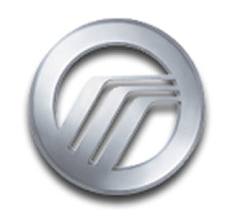Sable V6-183 3.0L VIN U FI (1998)

Headlamp Dimmer Switch: Testing and Inspection
Flow of Diagnosis
1. Verify the customer's original concern by operating the switches to duplicate the condition:
^
in RUN without the engine running.
^
in START before the ignition switch is released.
^
in RUN with the engine running.
2. Inspect to determine if any of the following mechanical or electrical concerns apply:
Visual Inspection:
Mechanical
^
Damaged switch.
^
Low fluid level (washer system).
Electrical
^
Fuses.
^
Circuit wiring.
^
Generic electronic module.
^
Damaged ignition switch connectors.
3. If inspection reveals an obvious concern that can be readily serviced, correct the concern before continuing with Inspection and Verification.
4. If the concern remains after the inspection, connect the New Generation STAR (NGS) Tester, to the Data Link Connector (DLC) located beneath
the instrument panel and select the vehicle to be tested from the NGS menu. If the NGS does not communicate with the vehicle:
^
check that the program card is properly installed.
^
check the connections to the vehicle.
^
check the ignition switch position.
5. If the NGS still does not communicate with the vehicle, refer to the New Generation STAR Tester manual.
6. Perform the DATA LINK DIAGNOSTIC TEST. If the NGS responds with:
^
CKT914, CKT915 OR CKT70 = ALL ECUS NO RESP/NOT EQUIP.
^
NO RESP/NOT EQUIP for Generic Electronic Module (GEM), go to Pinpoint Test E.
^
SYSTEM PASSED, retrieve and record the continuous Diagnostic Trouble Codes (DTCs), erase the continuous DTCs and perform self-test
diagnostics for the GEM.
7. If the DTCs retrieved are related to the concern, go to Generic Electronic Module (GEM) Diagnostic Trouble Code (DTCs) Index to continue
diagnostics.
8. If no DTCs related to the concern are retrieved proceed to the Symptom Chart to continue diagnostics.
Initial Inspection and Diagnostic Overview
1. Verify the customer's original concern by operating the switches to duplicate the condition:
^
in RUN without the engine running.
^
in START before the ignition switch is released.
^
in RUN with the engine running.
2. Inspect to determine if any of the following mechanical or electrical concerns apply:
Visual Inspection:
Mechanical
^
Damaged switch.
^
Low fluid level (washer system).
Electrical
^
Fuses.
^
Circuit wiring.
^
Generic electronic module.
^
Damaged ignition switch connectors.
3. If inspection reveals an obvious concern that can be readily serviced, correct the concern before continuing with Inspection and Verification.
4. If the concern remains after the inspection, connect the New Generation STAR (NGS) Tester, to the Data Link Connector (DLC) located beneath
the instrument panel and select the vehicle to be tested from the NGS menu. If the NGS does not communicate with the vehicle:
^
check that the program card is properly installed.
^
check the connections to the vehicle.
^
check the ignition switch position.
5. If the NGS still does not communicate with the vehicle, refer to the New Generation STAR Tester manual.
6. Perform the DATA LINK DIAGNOSTIC TEST. If the NGS responds with:
